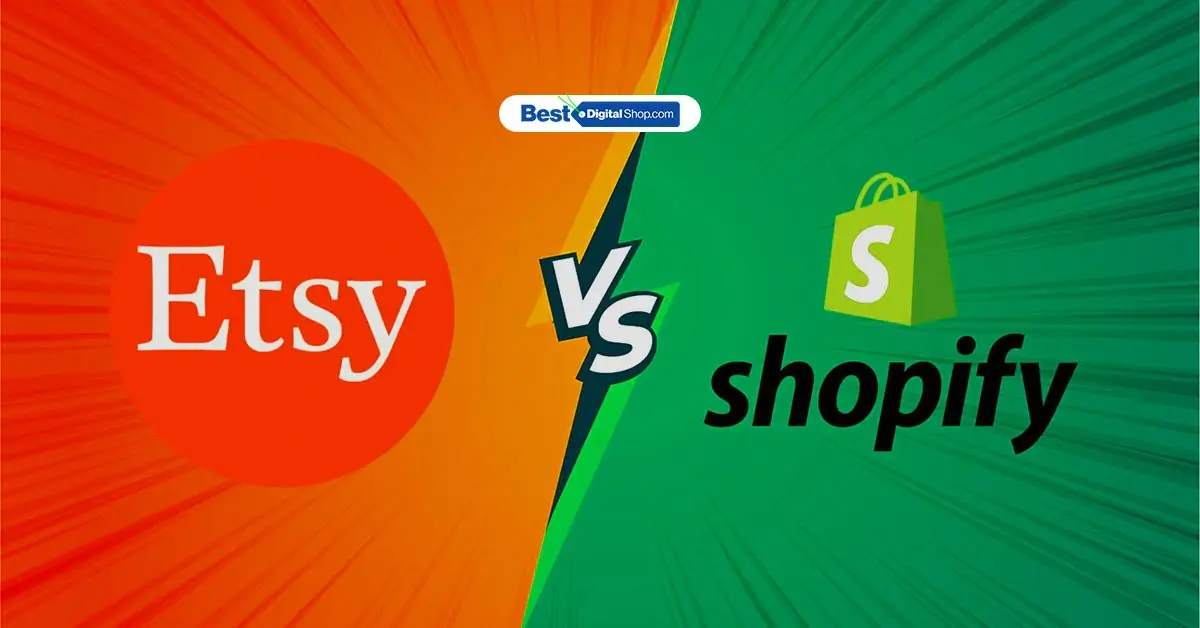Choosing the right platform for your online store can feel like standing at a crossroads. You want to make the best choice, but with so many options, where do you start?
If you’re considering Shopify and Etsy, you’re already on the right path. Both have their unique strengths, but which one is the perfect fit for you and your business? Imagine having the power to unlock your online shop’s true potential.
By understanding the differences between Shopify and Etsy, you can make a decision that not only boosts your sales but also aligns with your vision. This isn’t just another comparison. It’s your chance to dive deep and discover which platform resonates with your goals. So, if you’re ready to take control and make an informed choice, let’s explore what each platform can offer you.
Table of Contents
TogglePlatform Features
Shopify and Etsy can be challenging for online sellers. Both platforms offer unique features that cater to different business models. Shopify provides robust store customization options, while Etsy connects sellers directly with a vast marketplace. This section explores the core features of each platform to help you make an informed decision.
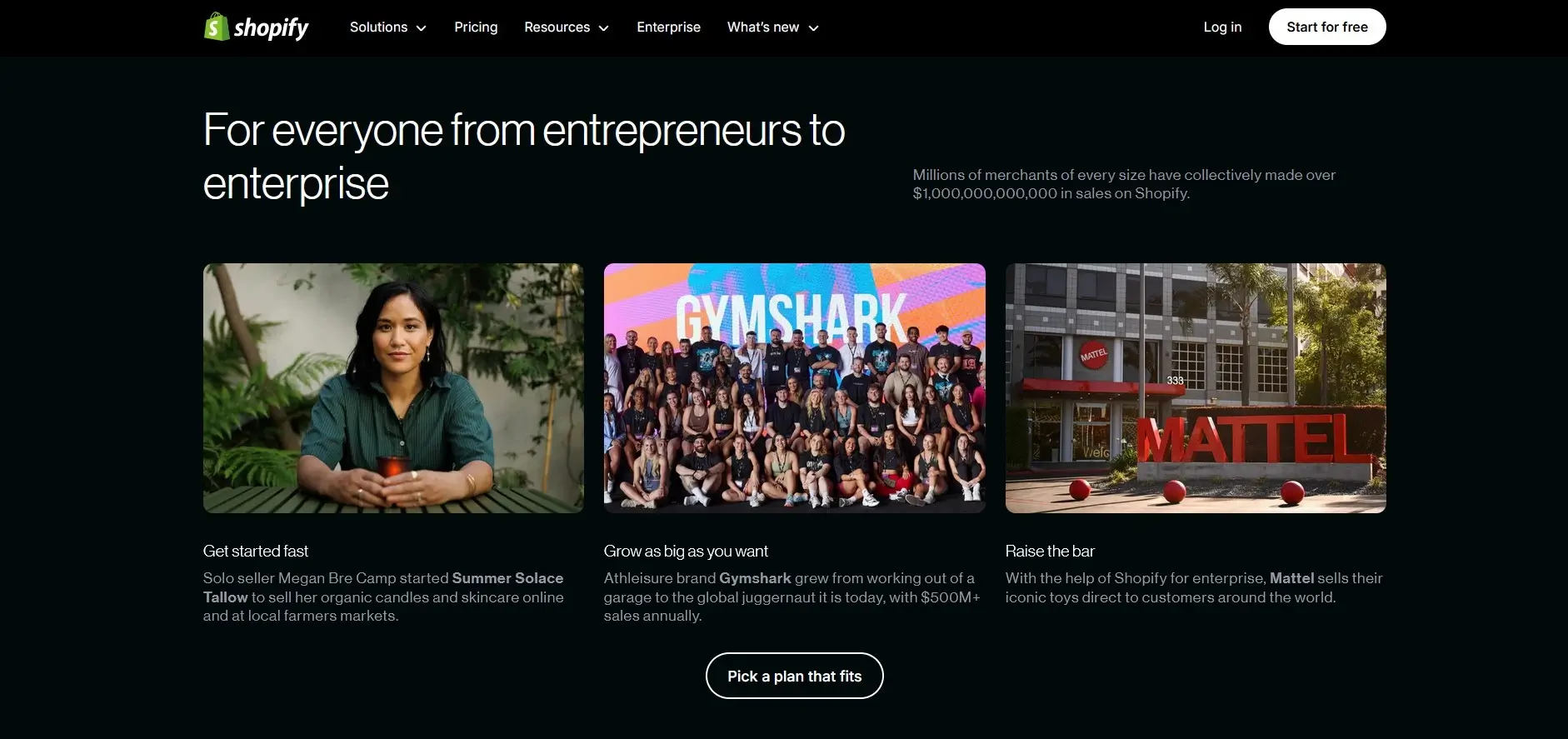
What is Shopify
Shopify stands out as a versatile ecommerce platform. Its store customization capabilities allow sellers to craft unique digital storefronts. Shopify’s design tools let you modify themes, fonts, and color schemes to reflect your brand identity. Key features include:
- Functionality: A standalone store where you build your own branded site.
- Reach and Popularity: Requires you to drive your own traffic through marketing.
- Shop Control: Full control and ownership of your store and customer data.
- Customization: Highly customizable with themes, apps, and integrations.
- How Do You Pay?: Operates on a subscription-based model with different pricing tiers.
Shopify’s marketplace comparison shows its strength in scalability. Unlike Etsy, Shopify is not a marketplace itself; it’s a platform to host your online store. Sellers benefit from customer reach through direct marketing efforts. Here’s a quick look at some essential Shopify features:
| Feature | Description |
|---|---|
| Store Customization | Advanced design tools for personalized online stores. |
| Business Models | Suitable for drop shipping, B2C, and B2B models. |
| Seller Fees | Monthly subscription-based with optional app purchases. |
What is Etsy
Etsy is known for its vibrant marketplace, ideal for artisans and vintage sellers. It simplifies online selling with a community-driven approach. Sellers list products in a global marketplace, leveraging Etsy’s customer reach. Key features include:
- Functionality: A marketplace where you list products alongside other sellers.
- Reach and Popularity: Gives access to over 70 million active buyers instantly.
- Shop Control: Limited control over your shop structure and operations.
- Customization: Heavily restricted; little room for brand personalization.
- How Do You Pay: Charges various fees for listing and selling products.
Etsy’s business modelfocuses on connecting sellers with buyers seeking creative products. This is different from Shopify’s model, where sellers drive their own traffic. Take a look at Etsy’s offerings:
| Feature | Description |
|---|---|
| Store Customization | Limited customization with focus on product presentation. |
| Seller Fees | Listing fees and transaction percentage per sale. |
| Digital Marketing | Promotional tools within the Etsy platform. |
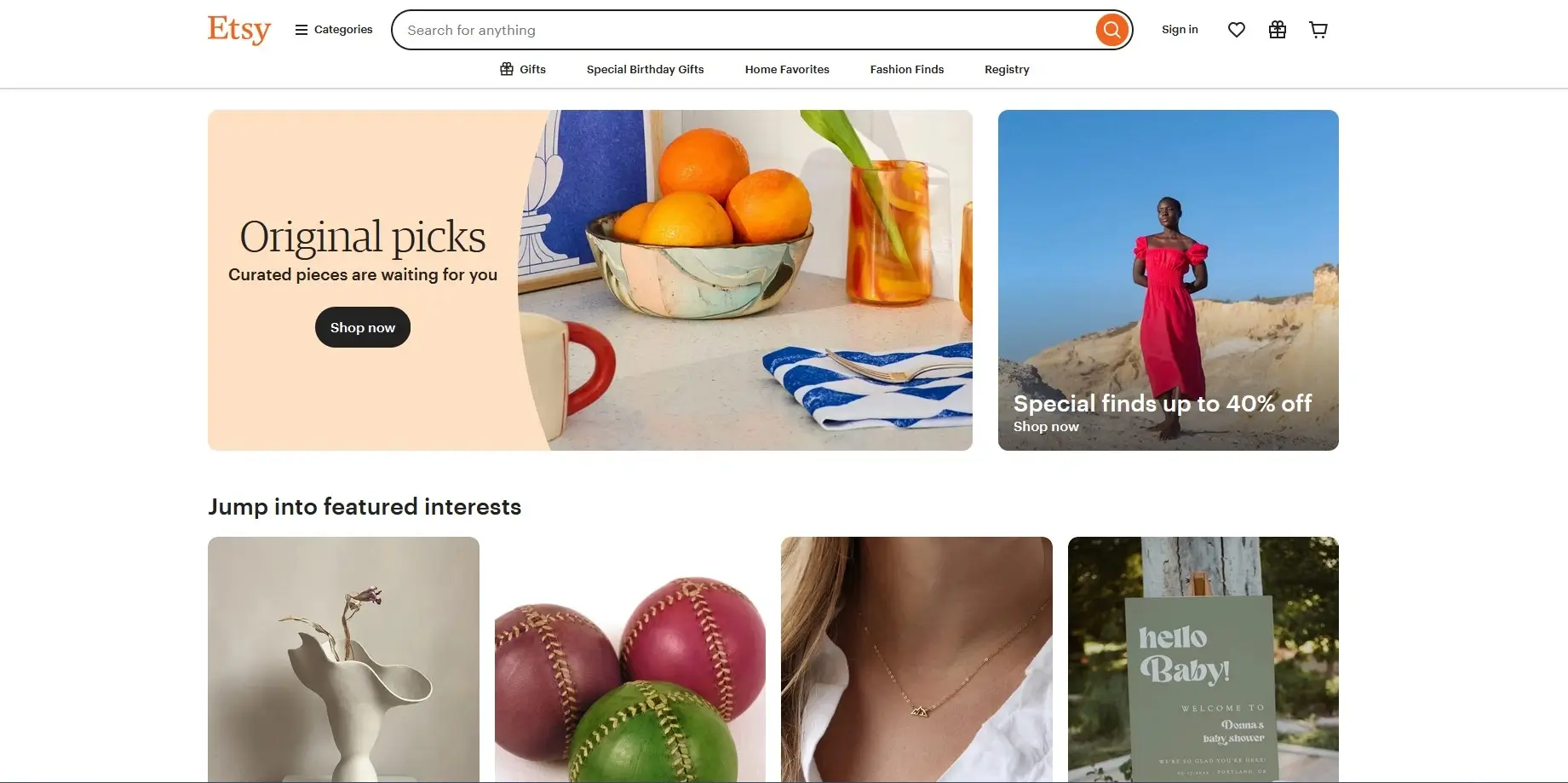
Target Audience
Shopify and Etsy are two popular ecommerce platforms, each catering to different needs and audiences. Understanding the target audience for each can help you make an informed decision. This article dives into the distinct groups that Shopify and Etsy attract, which can guide your choice based on your business goals.
Shopify Users
Shopify is an ideal choice for small business owners who want full control over their digital storefront. It provides extensive branding options, allowing entrepreneurs to create a unique online selling experience. Shopify users often prioritize:
- Customization:They want to have the freedom to design their storefront to match their brand identity.
- Sales Channels:Shopify enables integration with various sales channels, expanding reach beyond the traditional website.
- Product Listings:A flexible product listing system that caters to different business models, from physical goods to digital products.
Shopify users are typically looking to establish a strong brand presence. They may not mind paying transaction fees in exchange for a scalable platform. A comparison of Shopify’s features can be summarized as follows:
| Features | Details |
|---|---|
| Customization | High |
| Transaction Fees | Varies |
| Sales Channels | Multiple |
Etsy Shoppers
Etsy attracts a different audience focused on handmade, vintage, and unique items. It serves as a marketplace where customers enjoy browsing through a diverse range of products. Etsy shoppers are typically drawn to:
- Unique Products:Items that are not readily available in mainstream stores.
- Community Feel:They appreciate the community-driven marketplace environment.
- Transparent Pricing:Clear transaction fees and pricing structures.
Etsy is a great platform for sellers who want to tap into an established customer base without building a digital storefront from scratch. Sellers benefit from the marketplace comparison by accessing an audience already interested in niche products. Here’s a quick look at what Etsy offers:
| Features | Details |
|---|---|
| Product Type | Handmade/Vintage |
| Customer Base | Established |
| Transaction Fees | Fixed |
Cost Comparison
Understanding the cost differences can help sellers decide which platform suits their needs best. This section delves into the cost comparison of Shopify and Etsy, highlighting their pricing models and fees.
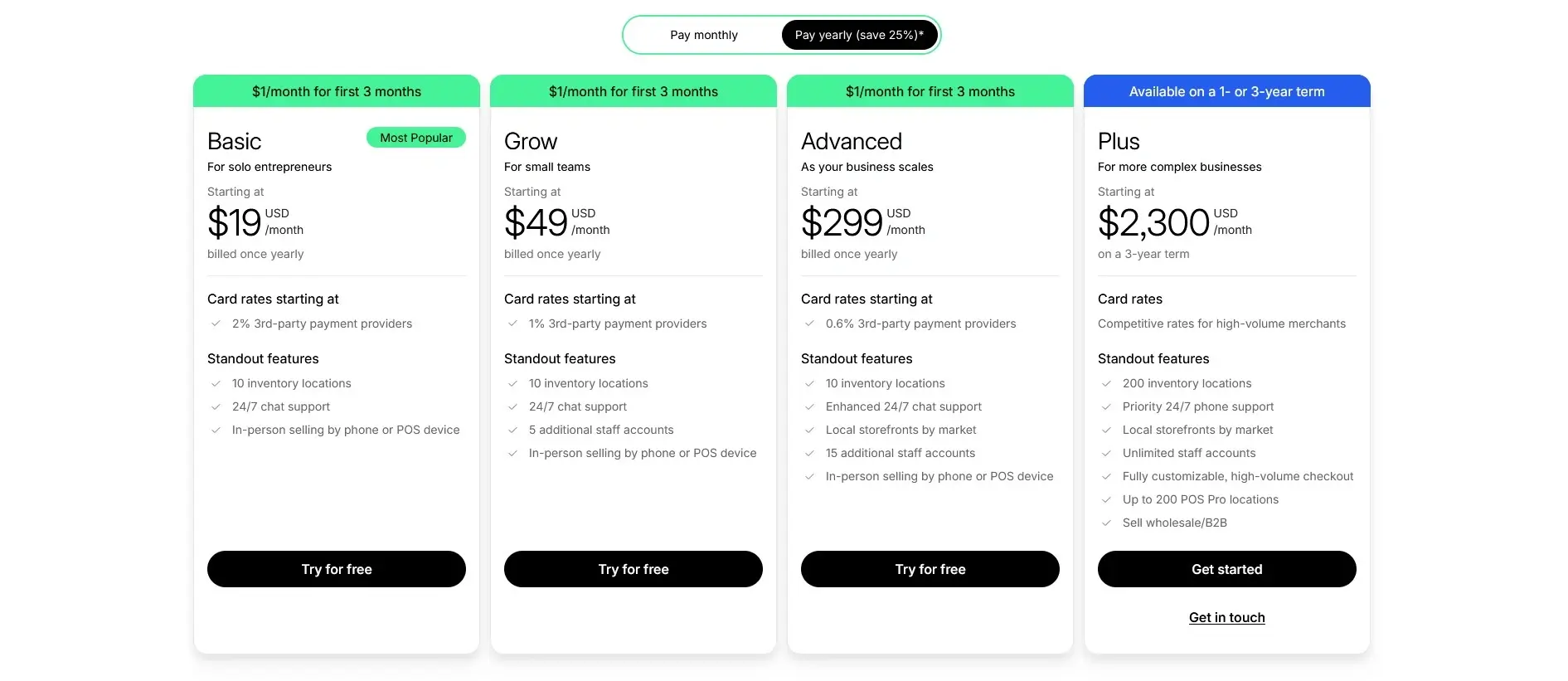
Shopify Pricing
Shopify offers a range of subscription plans tailored to different business needs. These Shopify Subscription Plansinclude Basic, Shopify, and Advanced, each providing various features.
- Basic Plan:$19/month
- Grow Plan:$49/month
- Advanced Plan:$299/month
- Plus Plan: $2,300/month
The Basic plan is ideal for small businesses. It includes essential Product Listing and Payment Processing options. The Shopify and Advanced plans offer more Marketing Options and Seller Tools, making them suitable for larger businesses.
| Plan | Monthly Cost | Main Features |
|---|---|---|
| Basic | $19 | 2% 3rd-party payment providers, 10 inventory locations, 24/7 chat support, In-person selling by phone or POS device. |
| Grow | $49 | 1% 3rd-party payment providers, 10 inventory locations, 24/7 chat support, 5 additional staff accounts, In-person selling by phone or POS device. |
| Advanced | $299 | 0.6% 3rd-party payment providers, 10 inventory locations, Enhanced 24/7 chat support, Local storefronts by market, 15 additional staff accounts, In-person selling by phone or POS device. |
Etsy Fees
Unlike Shopify, Etsy operates as an Online Marketplace. Sellers pay fees tied to their sales activities. Key fees include listing fees, transaction fees, and payment processing fees. Here’s a breakdown:
- Listing Fees: $0.20 per item listed.
- Transaction Fees: 6.5% of the sale price.
- Payment Processing Fees: Payment processing fees vary based on the location of your bank account.
These Etsy Selling Fees can add up, especially with high sales volumes. Etsy also offers optional services like advertising and shipping labels, which come with additional costs. Etsy’s fee structure can be simpler for small sellers.
There’s no monthly subscription. Costs are incurred only when items are listed or sold. This model can be appealing for businesses testing the waters or those seeking a straightforward cost layout. Understanding these fees is crucial for sellers aiming to optimize their User Experience and profitability on Ecommerce Platforms like Etsy.

Customization Options
Both platforms offer unique features that cater to different needs. Whether you’re setting up a digital storefront or enhancing your online marketplace presence, understanding the customization capabilities of each can help you make an informed decision. This section delves into how Shopify Themes and Etsy Listings offer various customization options to sellers.
Shopify Themes
Shopify provides a plethora of options through its Shopify Themes. These themes allow sellers to create a unique digital storefront that aligns with their brand identity. The flexibility in design is one of Shopify’s key strengths.
- Over 70+ themes available, both free and paid.
- Responsive design ensures compatibility across devices.
- Customization without coding using the drag-and-drop editor.
- Access to a vast library of plugins and apps.
Shopify’s customization also extends to its robust SEO for Shopify features, allowing businesses to optimize their stores for search engines. This can enhance visibility and attract more customers. The comprehensive Shopify Pricingplans cater to different business sizes, offering scalability as your business grows.
| Feature | Details |
|---|---|
| Theme Variety | Over 70+ themes available |
| Responsive Design | Compatible across devices |
| Customization Tools | Drag-and-drop editor |
Shopify Themes offer a high degree of customization, making it a preferred choice for those who want a distinct and personalized e-commerce platform.
Etsy Listings
Etsy Listings present a different approach to customization, focusing on product presentation within an established online marketplace. While Etsy doesn’t offer the same level of storefront customization as Shopify, it provides tools to make each product stand out.
- Easy-to-use listing editor for product details.
- Options to add multiple photos and detailed descriptions.
- Customizable tags to improve search visibility.
- Integration with various sales channels.
Etsy’s focus lies on product customization, allowing sellers to personalize each item. The platform is designed to showcase unique, handmade, or vintage items, which aligns with its brand image. The simplicity of Etsy’s interface makes it accessible for beginners.
While Etsy Fees can impact pricing, the platform’s integrated audience can be advantageous for new sellers. Unlike Shopify, Etsy Listings are more about the product than the storefront, offering a straightforward path to selling online.
The choice between Shopify and Etsy depends on how much control you want over your digital storefront versus focusing on product customization within a bustling online marketplace.
Marketing Tools
Shopify and Etsy offer unique marketing tools. Shopify provides a range of features for business growth strategies, while Etsy focuses on seller tools that enhance product listing optimization and customer engagement. Understanding their marketing tools can help boost your digital marketing strategies and sales analytics.
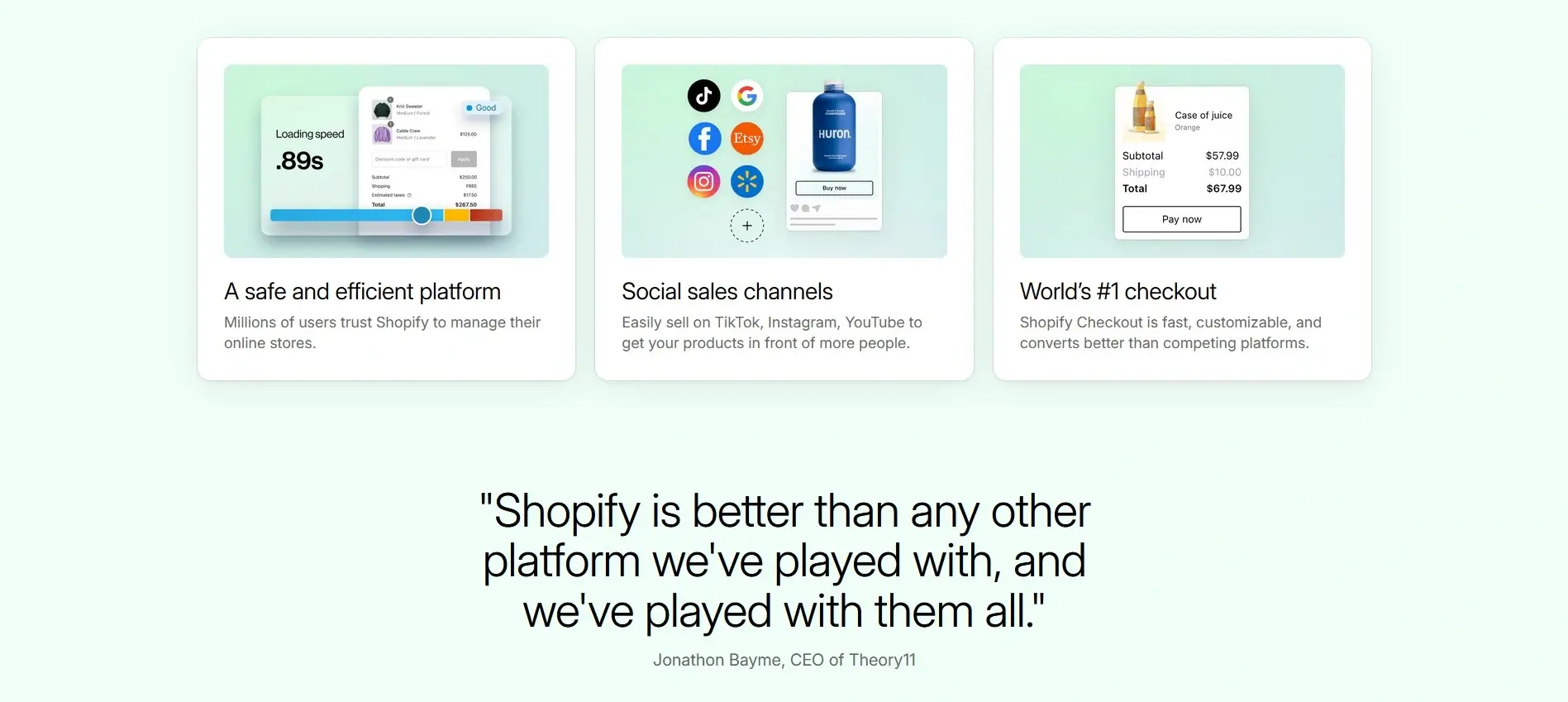
Shopify Marketing
Shopify offers a comprehensive suite of marketing tools designed to enhance seller performance. With Shopify features, you can create customized email campaigns. This helps in maintaining regular contact with your customers.
The platform also supports social media integration. It allows you to engage with your audience on platforms like Facebook and Instagram. Another standout feature is Shopify’s built-in SEO tools. These tools ensure your store ranks well in search engine results.
This is crucial for attracting organic traffic. Shopify’s Sales Analytics provides valuable insights into customer behavior. It helps in refining your business growth strategies. Here’s a brief overview of Shopify’s marketing tools:
- Email Campaigns
- Social Media Integration
- SEO Tools
- Sales Analytics
Shopify’s marketing tools are designed to support both small and large businesses. They offer flexibility and powerful insights for effective digital marketing strategies.
Etsy Promotions
Etsy Marketplace focuses on unique seller tools that cater to artisans and craft enthusiasts. Etsy promotions are straightforward but effective. They allow sellers to boost their product visibility.
With Etsy’s “Sales and Coupons” feature, you can easily offer discounts. This attracts more customers and increases sales. Product listing optimization is essential on Etsy. The platform provides tips and tools to enhance your listings.
Better listings lead to higher visibility in search results. This is vital for driving traffic to your shop. Here’s what Etsy offers in terms of promotions:
- Sales and Coupons
- Listing Optimization Tools
- Ad Campaigns
- Customer Engagement Tips
By focusing on product listing optimization and customer engagement, Etsy ensures your products reach the right audience. This approach makes it easier for sellers to connect with potential buyers.
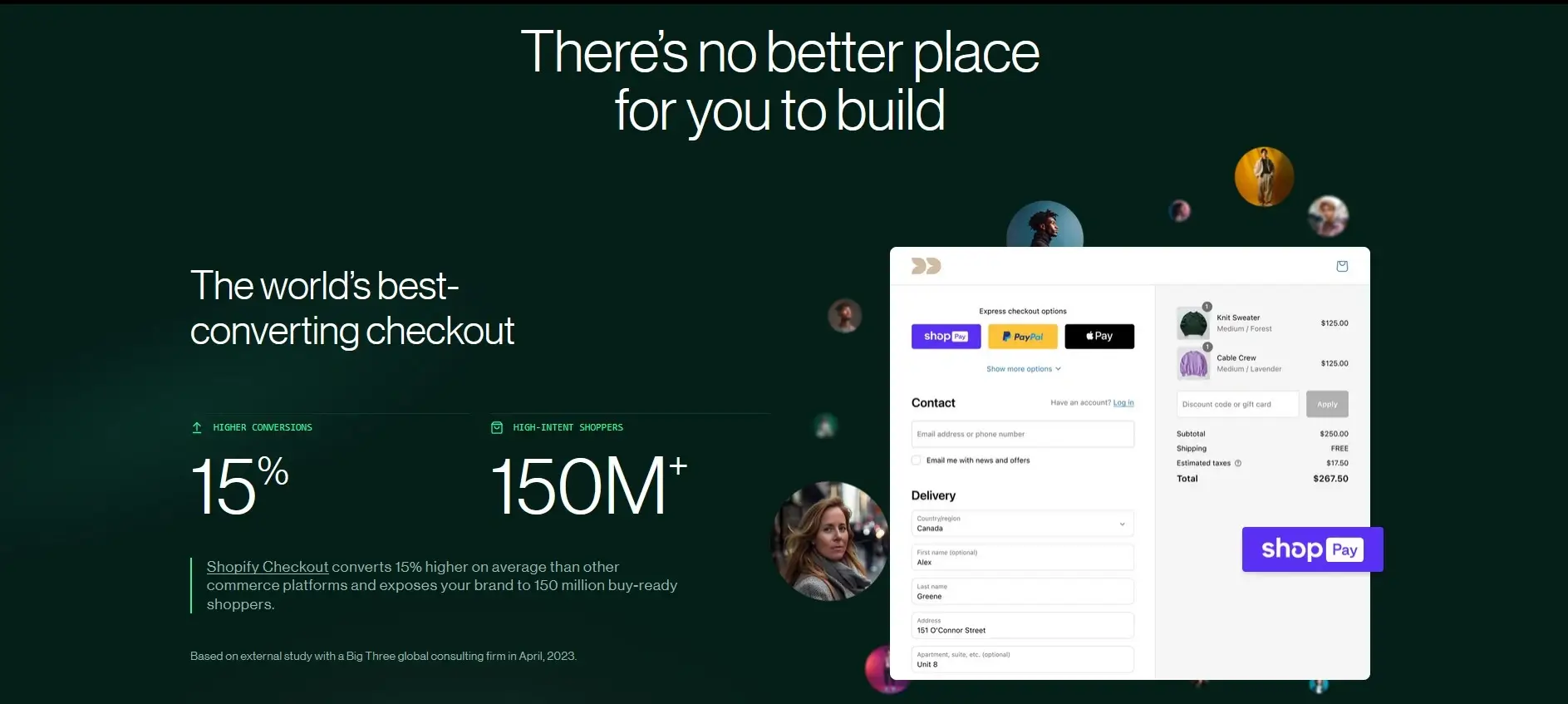
Sales Channels
Shopify and Etsy has a key consideration for sellers is the sales channels each platform offers. Sales channels determine how products reach customers. They influence visibility, customer engagement, and ultimately, sales success. Understanding these channels helps sellers decide which platform aligns best with their business goals.
Shopify Integrations
Shopify offers a wide range of integrations to expand your sales channels. These integrations enhance Shopify features and allow sellers to connect with customers across multiple platforms. From social media to online marketplaces, Shopify provides tools to streamline operations and boost sales. Some key integrations include:
- Social media platforms like Facebook and Instagram
- Marketplaces such as Amazon and eBay
- Email marketing tools like Mailchimp
- Payment processing gateways like PayPal and Stripe
Shopify’s vast integration capabilities allow for advanced product listings and sales analytics. Sellers can track performance, manage shipping options, and adjust strategies based on data insights. This flexibility makes Shopify a robust choice for businesses aiming to grow their online presence.
Etsy Marketplace
Etsy operates as a centralized marketplace, offering a distinct approach to online selling. Unlike Shopify, Etsy provides a built-in audience of customers looking for unique, handmade, or vintage products. This setup simplifies the selling process for Etsy sellers who want to focus on crafting rather than marketing. Some benefits of the Etsy marketplace include:
- Access to a large, established customer base
- Built-in search and browsing features
- Community support and resources
- Simple payment processing and order management
Etsy’s environment fosters a community feel, encouraging customer engagement through reviews and direct messaging. This can be advantageous for those who prefer a more personal touch in their business. While the marketplace comparison shows Shopify as a tool-heavy platform, Etsy offers simplicity and ease for those who value community and creativity.
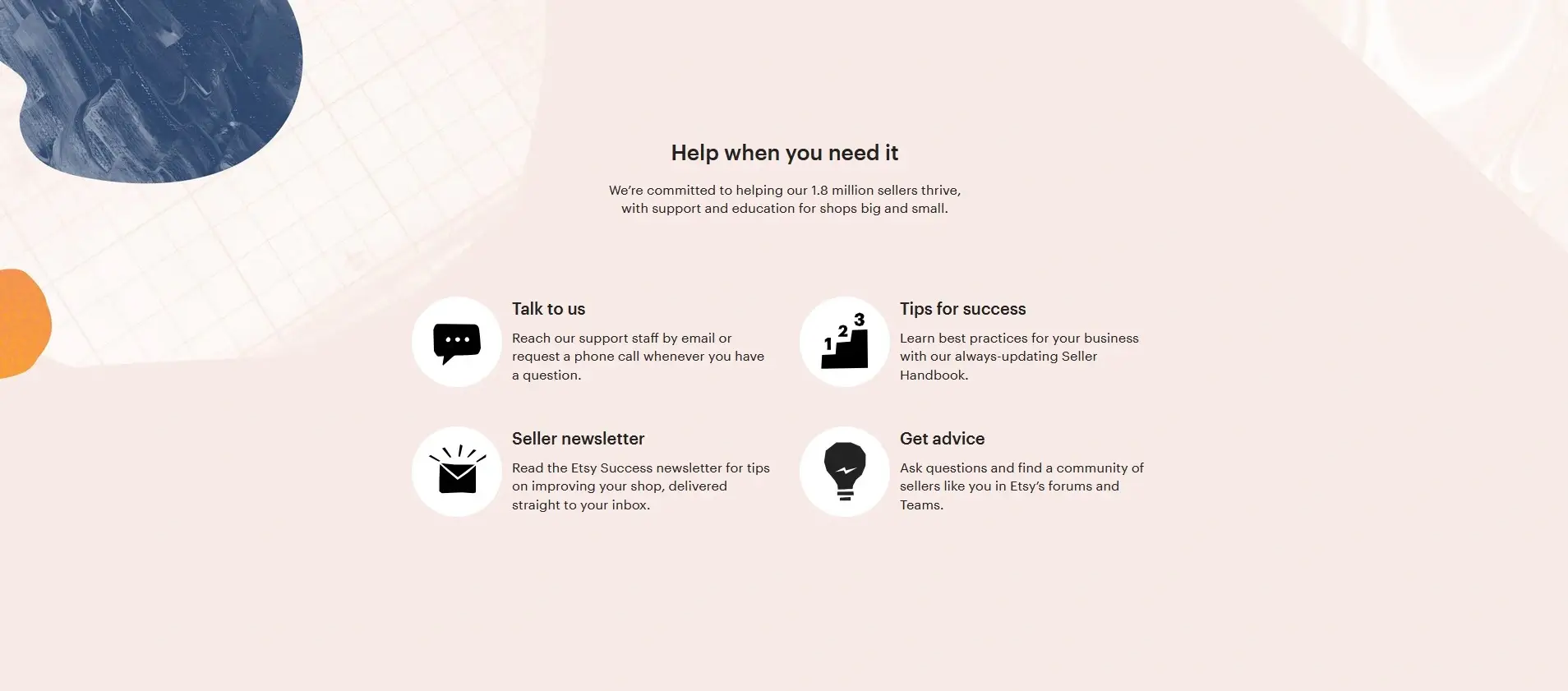
Customer Support
Customer support is a key consideration. Shopify and Etsy both offer support systems designed to assist sellers, each with unique features and benefits. Understanding their customer support can help you decide which platform best meets your needs in the Marketplace Comparison.
Shopify Assistance
Shopify stands out with its comprehensive Seller Support, making Online Selling smoother for businesses of all sizes. 24/7 support is available via chat, email, and phone. This is crucial for Business Scalability as it ensures issues are addressed promptly.
- Dedicated help center with tutorials and guides.
- Community forums for peer advice.
- Extensive documentation on Shopify Features.
Shopify also offers a range of resources to enhance your Digital Storefronts:
| Resource Type | Description |
|---|---|
| Video Tutorials | Step-by-step instructions for Product Listing and more. |
| Webinars | Live sessions covering advanced E-Commerce Platforms strategies. |
These resources are designed to empower sellers by providing detailed information and practical solutions. Shopify’s support system ensures businesses can efficiently resolve issues and optimize their online presence.
Etsy Help Center
Etsy’s customer support is tailored for those Selling Handmade Goods, offering unique Etsy Advantages. The Etsy Help Center is the main resource for sellers needing assistance with Digital Storefronts. It includes:
- Comprehensive FAQs covering common issues.
- Seller Handbook with tips for Online Selling.
- Community forums for connecting with other sellers.
While Etsy does not provide 24/7 support, it offers email support with a response time within 48 hours. This can be sufficient for many sellers focusing on niche products. Etsy also emphasizes community-based support, allowing sellers to share insights and solutions.
The platform’s focus on community creates a supportive environment, which can be especially beneficial for those new to E-Commerce Platforms.
For sellers prioritizing a personal touch in their Marketplace Comparison, Etsy’s approach may be appealing. It promotes collaboration and mutual assistance among sellers, fostering a unique sense of community and shared knowledge.
Scalability
Shopify and Etsy each offering unique benefits. One significant factor to consider is Scalability. This determines how well a platform can grow with your business. Whether you’re expanding your product listings or reaching more customers, scalability plays a key role in your digital storefront’s future.

Shopify Growth
Shopify provides robust Shopify Features that support business scalability. It’s designed to accommodate businesses as they grow. Here’s how:
- Unlimited Product Listings:Shopify allows you to add as many products as you want. This is essential for businesses with diverse offerings.
- Customizable Themes:You can tailor your digital storefront to match your brand, making it easier to attract and retain customers.
- Third-party Integrations:Shopify supports numerous integrations, helping streamline operations and enhance customer reach.
Shopify’s e-commerce platform is built to handle high traffic. Its infrastructure ensures smooth operations during peak times. For businesses planning to expand internationally, Shopify offers multi-currency support. This allows seamless transactions across borders.
| Feature | Benefit |
|---|---|
| Product Listings | Unlimited |
| Customer Reach | Global |
| Selling Fees | Competitive |
Etsy Limitations
While Etsy has its Etsy Advantages, it faces limitations in terms of business scalability. Etsy operates as a marketplace, which impacts how sellers expand:
- Limited Product Listings:Etsy restricts certain types of products, limiting diversity in offerings.
- Fixed Templates:Sellers have fewer customization options for their digital storefronts.
- Selling Fees:Etsy charges fees for listings and transactions, which can accumulate as your business grows.
In the Marketplace Comparison, Etsy provides an established audience. Yet, this audience may not always align with niche markets. Etsy’s infrastructure is tailored for smaller operations, making large-scale online selling challenging. Etsy’s Customer Reach is somewhat limited. Businesses may find it difficult to expand internationally due to its marketplace structure. For those seeking broader exposure and scalability, Etsy’s model may present hurdles.
Frequently Asked Questions
What Are The Key Differences Between Shopify And Etsy?
Shopify is a comprehensive e-commerce platform offering extensive customization options. Etsy, on the other hand, is a marketplace focused on handmade and vintage items. Shopify requires building your own store, while Etsy provides a ready-made audience. Your choice depends on whether you want a custom store or access to an existing marketplace.
Which Is Better For Small Businesses, Shopify Or Etsy?
For small businesses, Etsy is ideal if you’re selling handmade or vintage items due to its built-in audience. Shopify is better for businesses needing more control over branding and customization. It allows you to create a unique store with advanced features tailored to your specific business needs.
How Does Pricing Differ Between Shopify And Etsy?
Shopify charges a monthly fee starting from $29, plus transaction fees. Etsy charges a listing fee of $0. 20 per item and a 5% transaction fee on sales. Shopify offers more pricing flexibility, while Etsy’s fees are more straightforward but can add up with each sale.
Can I Sell Digital Products On Shopify And Etsy?
Yes, both Shopify and Etsy allow selling digital products. Shopify provides tools for automated delivery of digital files to customers. Etsy supports digital sales with its instant download feature. Both platforms make it easy to sell items like art, music, and printable content online.
Conclusion
Choosing between Shopify and Etsy depends on your business needs. Shopify offers more control and customization. It’s great for a brand-focused store. Etsy is simpler and ideal for handmade goods. It connects you with a ready audience. Consider your budget and goals.
Think about your product type and customer reach. Both platforms have unique advantages. Evaluate your priorities before deciding. Your business success depends on the right fit. Take time to explore both options. Make an informed choice. A well-suited platform can enhance your online selling experience.

– is a trusted tech reviewer who dives deep into the world of computing, home appliances, TVs, digital gear, and software lifetime deals. With a sharp eye for performance and value, he helps readers and buyers make smarter decisions through honest, data-driven reviews. Whether it’s the latest gaming rig, a must-have productivity tool, or a hidden lifetime deal gem, Billy breaks it all down—so you get the best tech without the guesswork.

